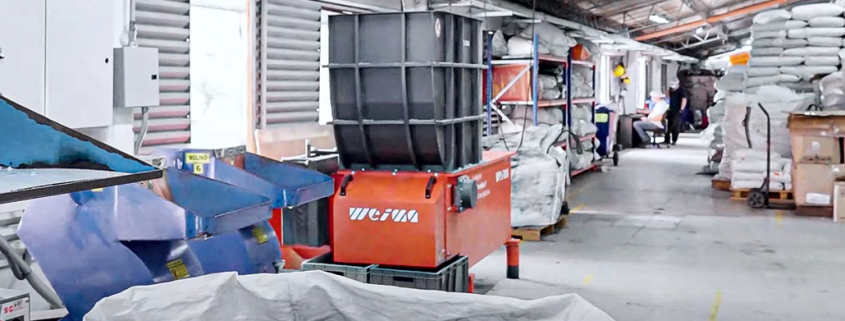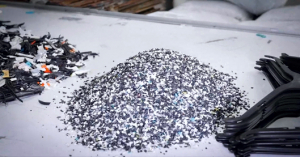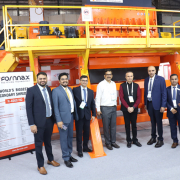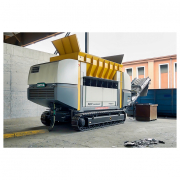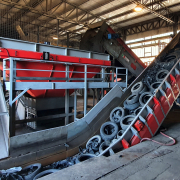Clothes Hanger Recycling in Colombia
In the manufacturing of plastic clothes hangers, the Colombian company Plásticos Ojara benefits from the advantages of internal recycling.
The Colombian company is located in the idyllic south of the city of Medellin, Germany-based manufacturer Weima reported in a success story. “Thanks to the use of a WLK 4 single-shaft shredder, it is possible to recycle rejected products on-site and return the material to the production process. In this way, waste can be effectively avoided, the purchase of raw materials can be reduced, and previously unused residual plastic is given a second life.”
According to the information, the Latin American company was looking for a way to further optimize production and at the same time make it even more environmentally friendly. Those responsible at Plásticos Ojara decided not to dump rejects in the future, but instead reintegrate the raw material into the manufacturing process. The cycle begins with an industrial shredder.
The WLK 4 single-shaft shredder has a working width of 600 millimeters and an electromechanical drive with Weima‘s own WAP gearbox in combination with a V rotor and a generously dimensioned hopper in log space design, the report provided by the German engineering firm said. “This prevents feed material from forming bridges. As a rule, it is operated with a throughput of approx. 350 kilograms per hour, but a higher throughput is also possible with continuous feeding. The rotor cutting blades can be flipped several times when worn, which drastically reduces the machine‘s maintenance costs. The shredder can be operated intuitively via the touchscreen display.”
Plásticos Ojara uses only polypropylene (PP), polystyrene (PS), and polyethylene (PE) to produce hangers. Around 250,000 kilograms of these materials are processed every day, most of which come from the company‘s own production. Waste generated in the production process (e.g. during start-up and shut-down) is shredded by the WLK 4, then granulated and returned to the manufacturing process to produce new hangers. Around 30 percent of the clothes hangers are now made using regranulate. In addition to recycling in-house waste, the company also collects old clothes hangers from surrounding customers or stores.
(Published in GLOBAL RECYCLING Magazine 3/2022, Page 53, Photo: Weima)

